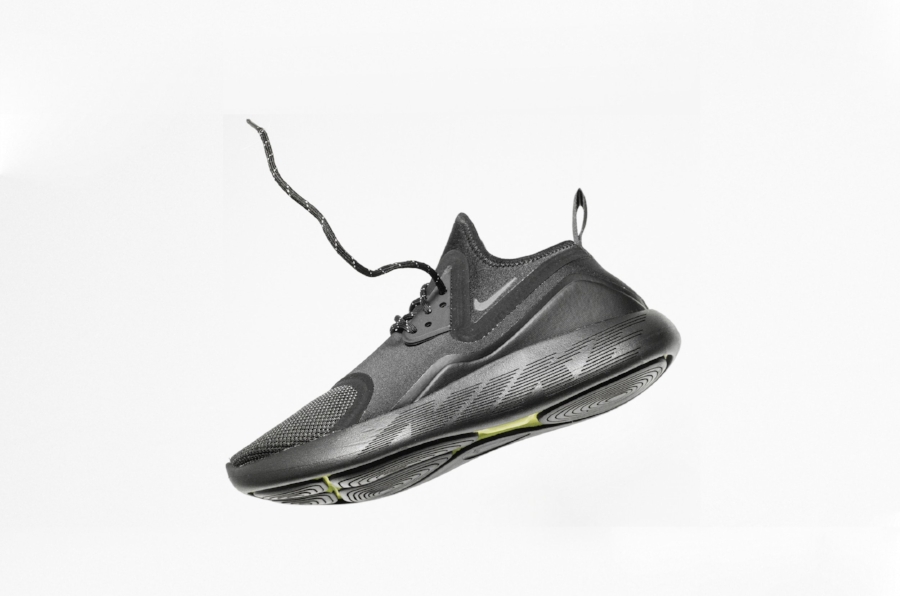
image: Imani Clovis (Unsplash)
LVMH’s Bernard Arnault is not the only industry name being drug into the Paradise Papers mix. Nope, Nike is front and center in the discussion that has sprung up from the bounty of leaked documents published by the International Consortium for Investigative Journalists (“ICIJ”) on Monday, which has served to shed light on the tax practices of some of the world’s highest net-worth individuals and companies.
On the heels of leaking the Panama Papers in April 2016, the Washington, D.C.-based ICIJ and 95 media partners explored 13.4 million documents from a combination of leaked files of offshore law firms and the company registries as first obtained by the German newspaper Süddeutsche Zeitung, and ultimately shared with the ICIJ.
As noted by the ICIJ, “The Paradise Papers documents include nearly 7 million loan agreements, financial statements, emails, trust deeds and other paperwork over nearly 50 years from inside Appleby, a prestigious offshore law firm with offices in Bermuda and beyond.”
Among those of interest: “At least 13 allies, major donors and Cabinet members of U.S. President Donald J. Trump appear, including Commerce Secretary Wilbur Ross’s interests in a shipping company that makes millions from an energy firm whose owners include Russian President Vladimir Putin’s son-in-law and a sanctioned Russian tycoon.” Also in the mix: Nearly 100 multinational corporations, including Apple, Nike and Uber.
Intellectual Property in Paradise
Nike proves an interesting inclusion, as the leaked files shed light on how the Jumpman “stays one step ahead of regulators,” as the ICIJ put it. According to documents uncovered as a result of the leak, it was revealed that the Portland-based sportswear giant is using (or until recently, was using) its famous intellectual property (“IP”) – including its world renowned “Swoosh” mark, famous “Just Do It” phrase, and presumably its many valuable patents – as a way to enjoy preferable tax treatment.
As asserted by the ICIJ, Nike established a Bermudan holding company, Nike International Ltd., in 2006 with authorization from the Dutch government (Nike’s European headquarters is in the Netherlands), through which it maintained its non-U.S. intellectual property rights. Per the ICIJ, while this entity was technically located in Bermuda, its “affairs were run by senior executives, lawyers and accountants at Nike’s headquarters in Beaverton, Oregon.”
Nevertheless, according to the ICIJ, “for tax purposes, Nike International remained firmly Bermudan,” thereby enabling the sportswear giant to collect royalty payments for others’ non-U.S. uses of its IP through Nike International Ltd. in Bermuda, thereby enabling Nike to collect a reported $6.6 billion in offshore profits by June 2014, on which it was taxed “just 3 percent outside the United States. And because it remained offshore, it had yielded no U.S. tax at all.”
Post-2014 Tax Dealings
Ahead of the expiration of “the generous 10-year deal that Nike received from Dutch tax authorities,” Appleby’s documents reveal that “Nike and its advisers, including the U.S. law firm Baker McKenzie, came up with a solution. With only a few adjustments, they realized, trademark payments could continue to flow out of Nike’s European headquarters with little or no tax.”
Those adjustments, per the ICIJ, included transferring Nike’s IP from the Bermuda subsidiary to a newly formed Dutch subsidiary, Nike Innovate CV. Why is this beneficial? Well, the ICIJ explains: “In effect, a CV that is owned by partners outside the Netherlands can be entirely stateless, and as a result taxless … In recent times, it has proved popular with [many U.S.] multinationals because, if set up carefully, it can escape Dutch taxes and taxes elsewhere, too.”
The ICIJ goes on to note, “Since switching … from the Bermuda subsidiary to the Dutch partnership in 2014, Nike’s pile of offshore profits has continued to grow. At the end of May 2017, it had reached $12.2 billion. These accumulated earnings have been taxed at less than 2 percent by foreign tax authorities – and not at all in the United States.”
Nike’s response to the ICIJ’s findings? “Nike fully complies with tax regulations. We rigorously ensure our tax filings are fully aligned with how we run our business, the investments we make and the jobs we create.”







